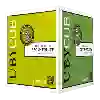
Winery BileFloc de Gascogne Blanc
This wine generally goes well with
Details and technical informations about Winery Bile's Floc de Gascogne Blanc.
Discover the grape variety: Blanqueiron
Blanqueiron blanc is a grape variety that originated in . It produces a variety of grape specially used for wine making. It is rare to find this grape to eat on our tables. Blanqueiron blanc is found in the vineyards of Provence and Corsica.
Informations about the Winery Bile
The Winery Bile is one of of the world's greatest estates. It offers 9 wines for sale in the of Côtes de Gascogne to come and discover on site or to buy online.
The wine region of Côtes de Gascogne
The wine region of Côtes de Gascogne is located in the region of Comté Tolosan of Vin de Pays of France. Wineries and vineyards like the Domaine Sichel or the Domaine Haut-Marin produce mainly wines white, red and sweet. The most planted grape varieties in the region of Côtes de Gascogne are Colombard, Gros Manseng and Merlot, they are then used in wines in blends or as a single variety. On the nose of Côtes de Gascogne often reveals types of flavors of red fruit, tangerine or jam and sometimes also flavors of watermelon, pomegranate or lemon grass.
The wine region of Comté Tolosan
Comte Tolosan is a PGI title that covers wines produced in a large area of Southwestern France. The PGI basin encompasses 12 administrative dePartments and is home to a wide range of appellations d'origine contrôlée (AOC) such as Jurançon, Cahors and Armagnac. The IGP label provides a geographical classification for wines that are not classified for AOC level appellations due to Grape variety or winemaking style. The region is part of the Aquitaine basin - the plains that lie between the Pyrenees, the Massif Central and the Atlantic Ocean to the west.
The word of the wine: Castle
A term often used to designate wineries, even if they do not have a real castle.












